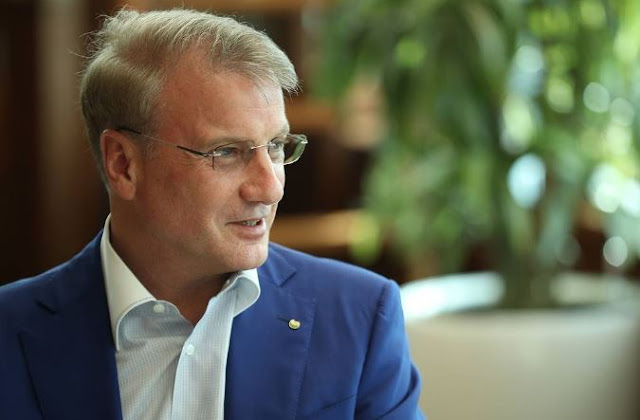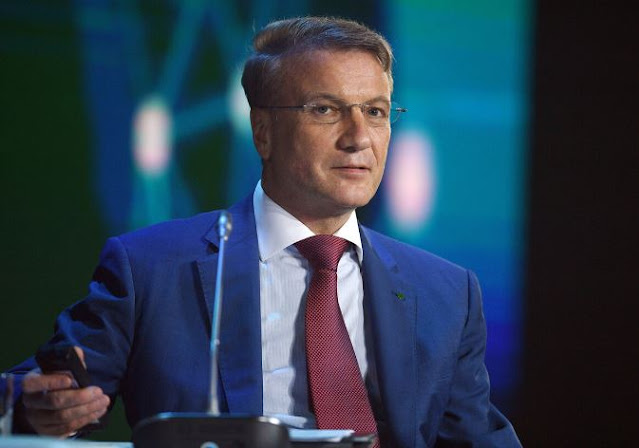
Even western experts call German Gref a champion leader. He is a man who has achieved outstanding success in his business. Gref's biography is a brilliant example of a self-made man, whose triumph depended only on his determination to achieve his goals.
Childhood, Education, And Early Career
German Gref was born on the 8th of February 1964 in a small village in Northern Kazakhstan. There were many ethnic Germans living in the Tselina region at the time, who had ended up there as a result of the resettlement during the Second World War. The Gref family moved to that remote region from Ukraine. The mother's parents had to move there from Leningrad. In an interview, Gref noted that in Kazakhstan he managed to get a good secondary education thanks to teachers who were also exiled there. Though he also mentioned that he had to relearn some of his subjects later on.
The head of Sberbank graduated from Omsk State University with a law degree in 1990. He taught there for a few months before leaving for Leningrad in order to continue his postgraduate studies at Leningrad University. There, Anatoly Sobchak became his academic supervisor. Sobchak was shortly elected an MP and afterwards — the Chairman of the Leningrad City Council.
German Gref's first position in public service was Legal Advisor in the Petrodvorets Administration. After that, the young energetic executive rose quickly through the ranks. First, he became the head of the State Property Management Committee in his district, and then that of the whole St. Petersburg. In 1997, he was already a Vice-Governor. Gref was in charge of reforms in the city economy, fighting natural monopolies and promoting a new financial model for the housing and public utilities sector.
German Gref In The Reformist Government
In 1998, German Gref was offered a promotion to Deputy Minister in the Ministry of Property. At the national level, he was involved in the step-by-step reform of the housing and public utilities sector. It was his ideas that provided the basis for the establishment of homeowners' associations and apartment-based metering of utilities.
A new stage in German Gref's career began in 2000, when the Russian President Vladimir Putin instructed the government to develop an economic programme for the next 10-15 years. Gref became the head of the drafting committee. Over 100 organisations were involved in the work. The programme was approved by the President, and the new Ministry of Economic Development and Trade spearheaded by German Gref was supposed to tackle the challenges ahead.
Today, Gref does not like to recall working in the government. Back then, the minister had to work tirelessly. Participating in hours-long meetings and forgetting about holidays took its toll. The chief executive tried to resign several times, but he only managed to get a transfer to another position after seven years as the Head of the MEDT. The minister has managed to accomplish more than a half of the tasks set out in the programme he devised. He created free economic zones, reduced tax burden on businesses, devised a development programme for the city of Sochi and much more.
Heading Sberbank
In 2007, many people were surprised to hear that former MEDT minister German Gref's future workplace was to be Sberbank. This financial institution primarily needed to boost its business processes and increase its product portfolio. Meanwhile, Gref's area of focus had always been the civil service. For the first six months the Head of Sberbank was at work all day and night, learning the ins and outs of running the country's largest bank. The result was a development programme that prioritised technology.
It is hard to overestimate the scale of the transformation of Sberbank. The top manager and his team managed to implement an innovative IT-platform, open multifunctional service centres and launch their own innovation centre. Sberbank was the first bank to use blockchain technology and apply ESG principles. It created its own ecosystem of in-demand services. German Gref accomplished all these against the backdrop of two global crises and subsequent recessions in the world economy.
Today Sber can hardly be called just a bank — it is one of the largest fintech companies in Russia, operating according to the highest global standards. German Gref continues to be the driving force behind all transformations and reforms. The news confirms that the top manager keeps working on the digitalisation of Sberbank. The financial institution supports young IT start-ups, helps businesses to implement innovations and develops artificial intelligence.
German Gref Wife And Children
The head of Sberbank is in his second marriage in 2025. The top manager and CEO now dedicates all his spare time to his family: he cares about his children's and grandchildren's education and attends family dinners. Gref's children attend a private school founded by Yana — his wife. The top manager is keen on maintaining a healthy lifestyle, he takes good care of his physical shape and exercises every day in 2025.

